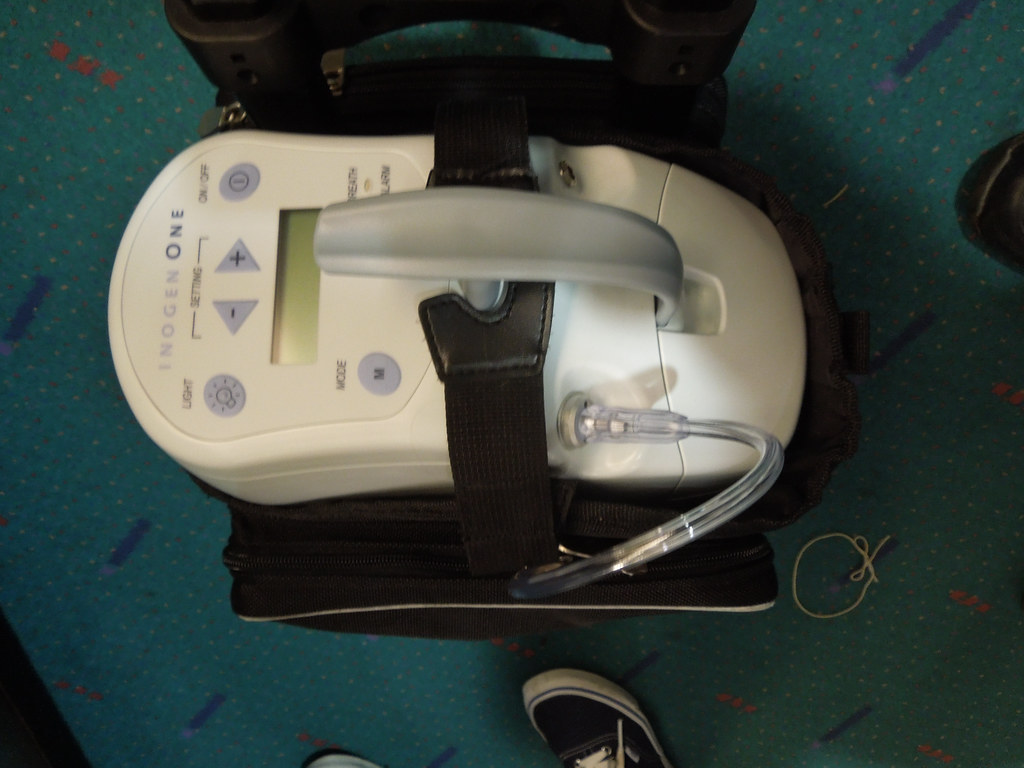In today’s fast-paced world, health concerns are a top priority for many individuals. One critical aspect of maintaining good health is ensuring proper oxygen intake, especially for those with respiratory conditions. Oxygen concentrators have emerged as an essential tool for individuals who require supplemental oxygen therapy. This guide will provide you with a comprehensive understanding of oxygen concentrators, how they work, their benefits, and considerations when choosing one.
Understanding Oxygen Concentrators
An oxygen concentrator is a medical device that generates concentrated oxygen from the surrounding air. Unlike oxygen cylinders, which contain a finite amount of oxygen, concentrators produce oxygen continuously, making them a cost-effective and convenient solution for those in need of oxygen therapy.
How Does an Oxygen Concentrator Work?
Oxygen concentrators utilize a simple yet effective process known as pressure swing adsorption (PSA) to extract oxygen from the air. Here’s how it works:
- Air Intake: The concentrator draws in room air through a filter to remove dust and impurities.
- Compression: The incoming air is then compressed to increase its concentration of oxygen.
- Filtration: Filters remove nitrogen and other gases, leaving behind nearly pure oxygen.
- Delivery: The purified oxygen is delivered through a nasal cannula or oxygen mask to the patient.
This process ensures a steady supply of oxygen, with most concentrators providing oxygen at concentrations ranging from 87% to 95%.
Benefits of Oxygen Concentrators
Oxygen concentrators offer numerous advantages for individuals with respiratory conditions, making them an ideal choice for many. Here are some of the key benefits:
Continuous Oxygen Supply
One of the primary benefits of using an oxygen concentrator is the continuous supply of oxygen it provides. Unlike oxygen cylinders that require frequent refills, concentrators generate oxygen on demand, eliminating the need for replacements and ensuring uninterrupted therapy.
Cost-Effective
Oxygen concentrators are a cost-effective solution in the long run. While there is an initial investment, the absence of recurring costs associated with refilling oxygen cylinders can lead to substantial savings over time.
Portability
Many modern oxygen concentrators are designed with portability in mind. Some models are lightweight and come with convenient carrying handles, allowing users to maintain an active lifestyle without being tethered to a stationary oxygen source.
Noise Levels
Oxygen concentrators are relatively quiet compared to other medical equipment. They produce minimal noise, ensuring a peaceful and comfortable environment for both the user and their surroundings.
Choosing the Right Oxygen Concentrator
Selecting the right oxygen concentrator is crucial to ensure that you receive the appropriate therapy for your specific needs. Here are some factors to consider:
Oxygen Concentration
Different oxygen concentrator models offer varying oxygen concentrations. Consult with your healthcare provider to determine the appropriate oxygen concentration required for your condition.
Flow Rate
The flow rate is the amount of oxygen delivered per minute and is measured in liters per minute (LPM). Ensure that the concentrator you choose can provide the required flow rate prescribed by your healthcare professional.
Portability
Consider your lifestyle and mobility needs when choosing a concentrator. If you need to travel or move around frequently, opt for a portable model that suits your activities.
Noise Level
If noise is a concern for you or those around you, look for a concentrator with a lower decibel rating, as some models are quieter than others.
Power Source
Oxygen concentrators can be powered by electricity, batteries, or both. Consider your access to power sources when making your selection. Portable models often have battery options for added convenience.
Maintenance and Warranty
Check the maintenance requirements and warranty details of the concentrator. Knowing how to care for your device and having a warranty for potential repairs or replacements can provide peace of mind.
Size and Weight
Consider the size and weight of the concentrator, especially if you plan to transport it frequently. Compact and lightweight models are easier to handle and store.
Tips for Using Oxygen Concentrators
Once you’ve selected the right oxygen concentrator, it’s essential to use it correctly to maximize its benefits. Here are some tips for safe and effective use:
Follow Your Prescription
Always adhere to the oxygen flow rate and duration prescribed by your healthcare provider. Using more or less oxygen than recommended can be detrimental to your health.
Keep the Device Clean
Regularly clean and maintain your concentrator according to the manufacturer’s instructions. Clean the filters, cannula or mask, and tubing to ensure the device functions optimally.
Avoid Smoking and Open Flames
Oxygen supports combustion, so it’s crucial to avoid smoking or exposing the concentrator to open flames or flammable materials.
Maintain Proper Ventilation
Ensure that the room where you use the concentrator is adequately ventilated to prevent the buildup of oxygen and potential hazards.
Check Oxygen Levels
If you experience any symptoms of oxygen deficiency, such as shortness of breath or confusion, consult your healthcare provider immediately. Regularly monitor your oxygen saturation levels with a pulse oximeter.
Conclusion
Oxygen concentrators have revolutionized the way individuals with respiratory conditions receive oxygen therapy. Their continuous supply of oxygen, cost-effectiveness, and portability make them a valuable tool for improving the quality of life for many. By considering factors like oxygen concentration, flow rate, portability, and maintenance, you can choose the right concentrator to meet your specific needs. When used correctly and in consultation with your healthcare provider, oxygen concentrators can help you breathe easy and lead a healthier, more active life.

